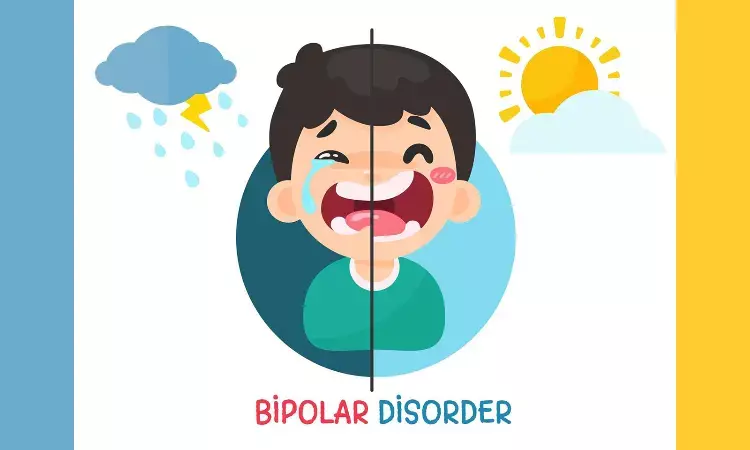- Home
- Medical news & Guidelines
- Anesthesiology
- Cardiology and CTVS
- Critical Care
- Dentistry
- Dermatology
- Diabetes and Endocrinology
- ENT
- Gastroenterology
- Medicine
- Nephrology
- Neurology
- Obstretics-Gynaecology
- Oncology
- Ophthalmology
- Orthopaedics
- Pediatrics-Neonatology
- Psychiatry
- Pulmonology
- Radiology
- Surgery
- Urology
- Laboratory Medicine
- Diet
- Nursing
- Paramedical
- Physiotherapy
- Health news
- Fact Check
- Bone Health Fact Check
- Brain Health Fact Check
- Cancer Related Fact Check
- Child Care Fact Check
- Dental and oral health fact check
- Diabetes and metabolic health fact check
- Diet and Nutrition Fact Check
- Eye and ENT Care Fact Check
- Fitness fact check
- Gut health fact check
- Heart health fact check
- Kidney health fact check
- Medical education fact check
- Men's health fact check
- Respiratory fact check
- Skin and hair care fact check
- Vaccine and Immunization fact check
- Women's health fact check
- AYUSH
- State News
- Andaman and Nicobar Islands
- Andhra Pradesh
- Arunachal Pradesh
- Assam
- Bihar
- Chandigarh
- Chattisgarh
- Dadra and Nagar Haveli
- Daman and Diu
- Delhi
- Goa
- Gujarat
- Haryana
- Himachal Pradesh
- Jammu & Kashmir
- Jharkhand
- Karnataka
- Kerala
- Ladakh
- Lakshadweep
- Madhya Pradesh
- Maharashtra
- Manipur
- Meghalaya
- Mizoram
- Nagaland
- Odisha
- Puducherry
- Punjab
- Rajasthan
- Sikkim
- Tamil Nadu
- Telangana
- Tripura
- Uttar Pradesh
- Uttrakhand
- West Bengal
- Medical Education
- Industry
Is lithium better than quetiapine in treating bipolar depression?

In a recent study published in Neuropsychopharmacology Reports, the results verified that the safety and effectiveness of lithium and quetiapine for treating bipolar depression were the same.
According to a global mental health study, bipolar illness is a severe chronic mood disorder with a lifetime incidence of around 1%. Bipolar disorder is frequently diagnosed later, which has negative social and financial effects on the individuals. Different recommendations prescribe different pharmaceutical therapies for bipolar depression. In this investigation, Masaya Ogasawara and colleagues investigated the effectiveness and security of mood stabilizers and antipsychotics for bipolar depression.
For this study the search for reports of RCTs was conducted in the electronic databases of ClinicalTrials.gov (search date: March 3, 2021), Embase (search date: March 4, 2021), Cochrane Central Register of Controlled Trials (CENTRAL; search date: March 4, 2021), and PubMed (search date: March 3, 2021).
The rate of remission from depressive episodes (from baseline to up to 4 months of follow-up) served as the major end measure. A prior study was used to determine the study duration. The following were some of the secondary outcome measures: (2) alterations in the severity of depressive symptoms; (3) adjustments to social functioning; (4) suicide-related incidents; (5) grave adverse incidents; (6) dropouts as a result of adverse incidents; and (7) dropouts for any reason. The MADRS or HAM-D17 were both used to assess depressive symptoms. The Sheehan Disability Scale was used to assess social function (SDS).
The key findings of this study were as follow:
1. No further antipsychotic-mood stabilizer combinations were discovered; instead, three papers combining quetiapine with lithium were located and examined.
2. For the following outcomes: (1) remission from depressive episodes, (2) changes in depressive symptoms, (3) changes in social function, (4) suicide-related events, (5) severe adverse events, and (6) dropouts due to adverse events dropout for any reason, the meta-analysis found no significant differences between quetiapine and lithium.
In conclusion, this meta-analysis found no distinction between lithium and quetiapine in terms of effectiveness or safety for treating bipolar depression. It is unclear whether antipsychotics or mood stabilizers are more beneficial for treating bipolar depression, and further research is required, particularly when comparing antipsychotics and mood stabilizers other than quetiapine with lithium.
Reference:
Ogasawara, M., Takeshima, M., Esaki, Y., Kaneko, Y., Utsumi, T., Aoki, Y., Watanabe, N., Suzuki, M., & Takaesu, Y. (2022). Comparison of the efficacy and safety of quetiapine and lithium for bipolar depression: A systematic review and meta‐analysis of randomized controlled trials. In Neuropsychopharmacology Reports. Wiley.https://doi.org/10.1002/npr2.12283
Neuroscience Masters graduate
Jacinthlyn Sylvia, a Neuroscience Master's graduate from Chennai has worked extensively in deciphering the neurobiology of cognition and motor control in aging. She also has spread-out exposure to Neurosurgery from her Bachelor’s. She is currently involved in active Neuro-Oncology research. She is an upcoming neuroscientist with a fiery passion for writing. Her news cover at Medical Dialogues feature recent discoveries and updates from the healthcare and biomedical research fields. She can be reached at editorial@medicaldialogues.in
Dr Kamal Kant Kohli-MBBS, DTCD- a chest specialist with more than 30 years of practice and a flair for writing clinical articles, Dr Kamal Kant Kohli joined Medical Dialogues as a Chief Editor of Medical News. Besides writing articles, as an editor, he proofreads and verifies all the medical content published on Medical Dialogues including those coming from journals, studies,medical conferences,guidelines etc. Email: drkohli@medicaldialogues.in. Contact no. 011-43720751


